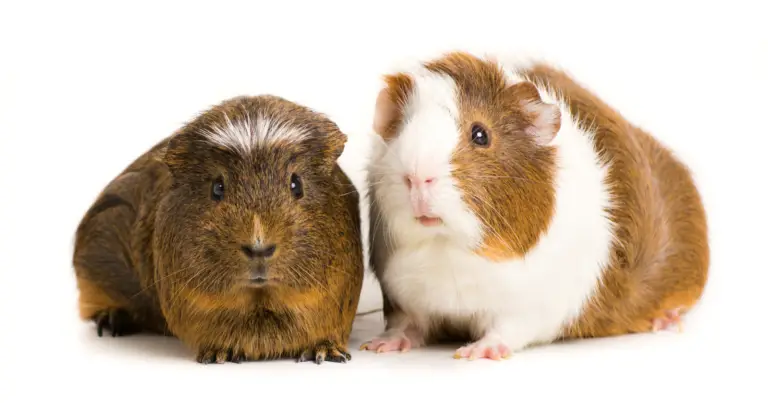Can You Feed Guinea Pigs Too Much Vegetables? Overdoing Greens in Their Diet
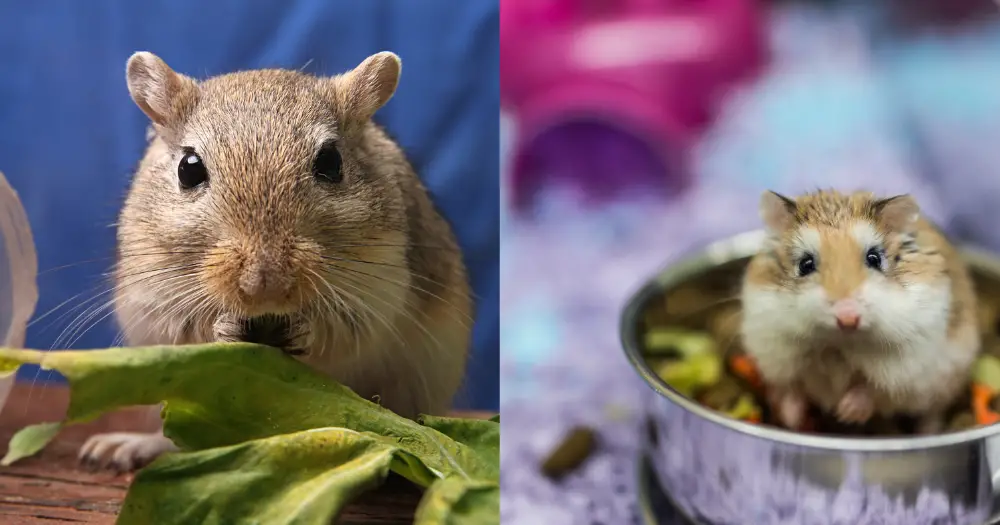
Guinea pigs are small, social animals that are loved as pets worldwide. They have specific dietary requirements and thrive on a well-balanced diet, which is mainly composed of hay or grass, fresh vegetables, and limited pellets. But can you feed guinea pigs too much vegetables?
Feeding your guinea pig the right amount and type of vegetables is essential for their health and wellbeing. Vegetables provide essential nutrients like vitamin C, which guinea pigs cannot produce on their own. Offering approximately one cup total of fresh veggies per guinea pig per day, mainly consisting of leafy greens, is recommended to maintain their overall health.
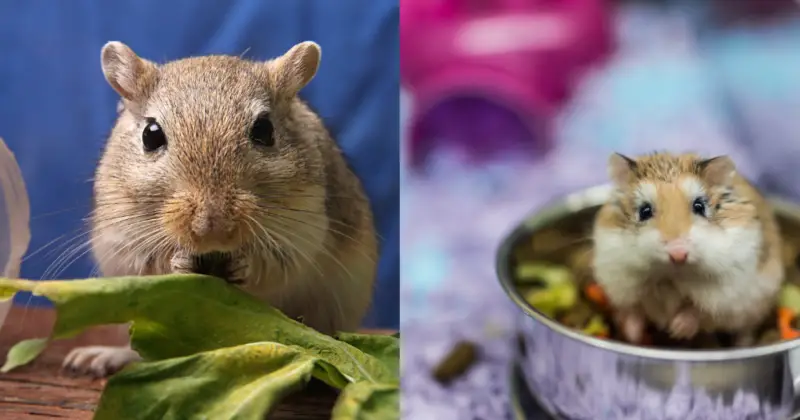
Contents
Table of Contents
The Importance of a Balanced Diet for Guinea Pigs
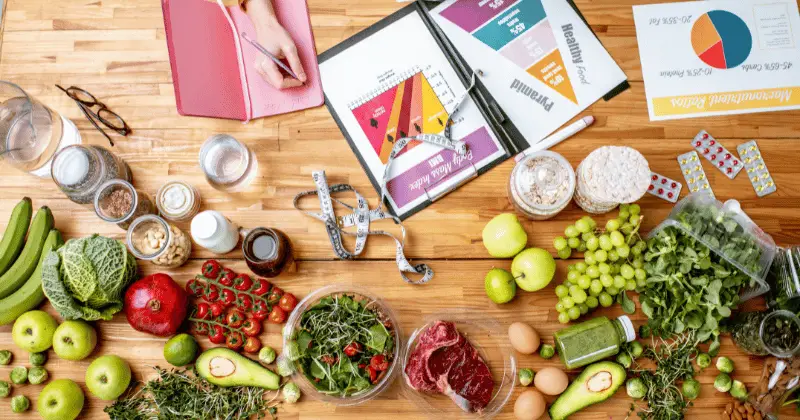
Maintaining a balanced diet is crucial for guinea pig’s overall health and well-being. A combination of hay, pellets, vitamin C, vegetables, and fruits should be offered to your pet guinea pig daily. Below are some essential components of a balanced diet for your guinea pig:
Timothy Hay and Grass
A guinea pig’s diet should consist of at least 85-90% hay and grass. These provide crucial fiber and minerals that keep their digestive systems functioning properly. Offering unlimited access to Timothy hay or other low-calcium hay is a good practice.
Changing and refreshing the hay regularly ensures they have an ample supply of fresh hay to munch on throughout the day.
Pellets and Vitamin C
Another important aspect of guinea pig nutrition is feeding them high-quality pellets. Choose Timothy-hay-based guinea pig pellets, as they are rich in fiber. Keep in mind that pellets should only supplement their hay intake, not replace it. Pellets can be offered in smaller quantities than hay.
Guinea pigs cannot produce their own vitamin C, which makes it essential to add it to their diet. Vitamin C deficiency can lead to scurvy and other illnesses. Include a daily supplement, or feed them vegetables high in vitamin C, like bell peppers and broccoli.
Vegetables and Fruits in Moderation
Fresh vegetables should make up only a small part of a guinea pig’s daily diet, typically about one cup per guinea pig per day. Some healthy options include leafy greens such as romaine lettuce, kale, and cilantro. Introduce new vegetables slowly and watch for any signs of digestive upsets. It’s best to offer a variety so they don’t become bored with their food.
Fruits should be given as an occasional treat due to their higher sugar content. Apples, pears, and berries are some popular choices, but always remove the seeds before feeding.
In summary, the key to keeping your guinea pig healthy is providing a balanced diet that includes hay, guinea pig pellets, vitamin C, and a moderate amount of vegetables and fruits. This will ensure they receive proper nutrition while preventing digestive issues and other health problems.
Vegetables for Guinea Pigs: Quantity, Variety, and Benefits
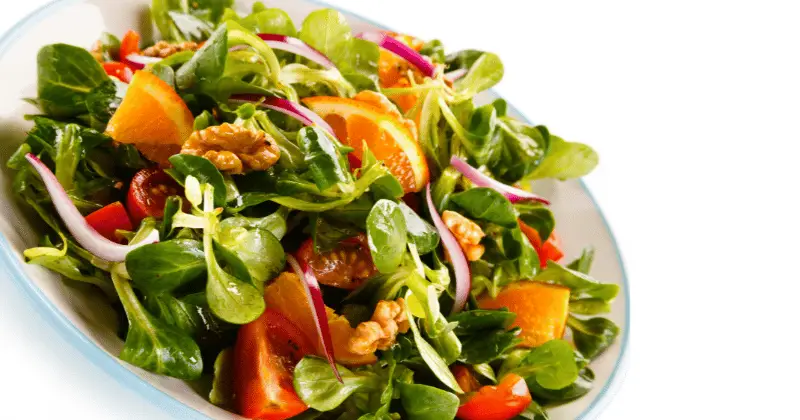
How Much Should You Feed?
Guinea pigs love vegetables, but too much of a good thing can be bad for them. When feeding vegetables to your furry friend, it’s essential to limit their intake to about one cup of fresh vegetables per guinea pig per day. This will ensure they maintain a healthy diet without overindulging in veggies that may cause digestive issues or unbalanced nutrition.
Variety Matters
A variety of vegetables is vital for a guinea pig’s diet. Mixing things up with different veggies can help provide your pet with various essential nutrients. Some good choices for guinea pigs include:
- Lettuce: Romaine, red and green leaf lettuces are excellent options, but avoid iceberg lettuce since it’s low in nutrients.
- Carrots: A high source of vitamin A, vitamin C, and fiber, but don’t feed them too much due to their natural sugar content.
- Tomatoes: Can be fed occasionally as they add variety to their diet, but remove the stem and leaves as they are harmful to guinea pigs.
- Kale and Spinach: These leafy greens provide valuable nutrients like calcium and vitamin C but should be fed in moderation.
- Broccoli: A great source of vitamin C but should be given in moderation to avoid gas and bloat issues.
- Bell peppers: Rich in vitamin C, bell peppers are an excellent addition to a guinea pig’s diet. You can feed them green, red, yellow, or orange bell peppers.
- Cucumber: A hydrating veggie ideal for hot days, but give in moderation as it is low in nutritional value.
Note that the guinea pig’s age plays a role in determining the vegetable intake. Keep close attention to their reaction to new vegetables and adjust the servings accordingly.
Benefits of Vegetables in the Diet
Feeding the right quantity and variety of vegetables to your guinea pig has numerous benefits. Here are a few advantages of including veggies in their diet:
- Vitamin C: Guinea pigs require vitamin C to stay healthy, and many vegetables are rich sources of it.
- Improved digestion: The fiber and water content in vegetables help maintain a healthy digestive system.
- Healthier coat and skin: Vitamins and minerals in vegetables contribute to a glossy coat and healthy skin.
- Reduced risk of health issues: A balanced diet, including vegetables, can lower the risk of obesity and other health problems like scurvy.
Remember always to introduce new vegetables gradually and observe your guinea pig’s reactions to avoid any potential digestive issues or allergies. A well-balanced diet with a mix of vegetables, pellets, and hay will keep your guinea pig happy and healthy.
Potential Risks and Health Issues

Obesity and Diabetes
Feeding guinea pigs too many vegetables can lead to health issues such as obesity and diabetes. Guinea pigs need a balanced diet with hay, pellets, and a modest amount of fresh vegetables. Overindulging in veggies can cause weight gain, which puts stress on their joints and bones and increases the risk of developing diabetes. It’s essential to monitor your guinea pig’s weight and adjust its diet as needed.
Digestive Problems
Guinea pigs have delicate digestive systems that can be easily disrupted by overfeeding them vegetables. Consuming too many vegetables can lead to digestive issues, such as gas, bloat, and diarrhea. Vegetables high in oxalates can cause oxalate stones if consumed in excessive amounts.
Moreover, feeding guinea pigs too much calcium from certain vegetables can result in urinary tract infections or bladder sludge.
To maintain a healthy digestive system, guinea pigs need a diet that consists mainly of hay. Hay not only provides necessary fiber but also helps keep their teeth from overgrowing. Balancing hay consumption with an appropriate portion of vegetables can help prevent digestive problems and other health concerns.
Necessary Monitoring and Adjustments
To ensure your guinea pig stays healthy, it is crucial to monitor their diet and make necessary adjustments based on their individual needs. If you notice any signs of health issues, such as digestive problems, weight gain, or lethargy, consider altering their vegetable intake and consulting a veterinarian if necessary.
Remember, every guinea pig is different and may have unique dietary requirements. By paying close attention to their eating habits and overall health, you can help reduce the risk of overfeeding-related health problems.
In conclusion, guinea pig owners should be cautious about overfeeding their pets with vegetables. By monitoring their guinea pig’s health and diet, owners can prevent health issues such as obesity, diabetes, and digestive problems, keeping their pets healthy and happy.
Too Much Veggies Are Bad For Your Guinea Pig’s Health! – Better Choices: Watch this
Safe and Unsafe Foods for Guinea Pigs
Safe Vegetables and Fruits
Guinea pigs thrive on a diet that includes a variety of safe vegetables and occasional fruit treats. Some excellent options are:
- Celery: Rich in water and low in sugar, making it a great hydrating snack.
- Zucchini: Provides essential vitamins and minerals.
- Parsley: A good source of vitamin C, but should be given in moderation due to its high calcium content.
- Asparagus: High in nutrients but should be fed in moderation.
- Strawberries and blueberries: Tasty fruit options, but should be given sparingly due to their sugar content.
- Endive, cilantro, and radicchio: Leafy greens that can be fed regularly.
- Dandelion and turnip greens: High in vitamins and minerals, but should be given in small amounts to avoid calcium overload.
- Kiwis and grapes: Occasional fruit treats that provide essential nutrients.
It is important to remember that while these options are safe, they should be fed in moderation to avoid digestive issues or an imbalance in nutrients.
Unsafe or Overrated Foods
There are certain foods or ingredients that may be harmful to guinea pigs or, at the very least, overrated in terms of nutrition. These foods to avoid include:
- Iceberg lettuce: Provides mainly water and has little nutritional value.
- Nuts and seeds: Choking hazards and too high in fat for guinea pigs.
- Peas, beetroot, and sweet potatoes: High in starch and sugar, which can lead to digestive issues and weight gain.
- Dried fruits: Concentrated sources of sugar without the hydration of fresh fruits.
In conclusion, maintaining a balance between safe vegetables, occasional fruits, and avoiding potentially harmful or overrated foods will help keep your guinea pig healthy and happy.
Tips on Feeding Your Guinea Pig Vegetables

Preparation and Storage of Fresh Vegetables
When providing fresh vegetables to your guinea pig, it’s important to wash them thoroughly to remove any pesticides or dirt. Chop the vegetables into small, manageable pieces for your guinea pig to consume easily. Store the leftover fresh vegetables in airtight containers in the fridge to maintain their freshness.
Remember to provide a variety of vegetables to your guinea pig. Some favorites include lettuce, kale, parsley, cilantro, cucumber, carrot, sweet bell peppers, tomato, and apple. Herbs such as parsley and cilantro can also be given as treats in moderation.
Gradually Introducing New Foods
Since guinea pigs have sensitive digestive systems, it’s important to introduce new foods into their diet gradually. Begin by offering a small amount of the new vegetable or fruit and observe their reaction to it. Slowly increase the quantity over several days if your guinea pig seems to enjoy it and shows no adverse effects.
Introducing a variety of vegetables, such as colorful bell peppers or a slice of orange as a treat, not only adds variety but also supplies essential vitamins like vitamin C.
Monitoring Your Guinea Pig’s Health
Keep an eye on your guinea pig’s health while introducing different vegetables and fruits in their diet. Overfeeding some vegetables like carrots, which are high in natural sugars, might lead to health issues if given daily. So, it’s essential to find a balance between providing a variety of vegetables and maintaining your guinea pig’s overall health.
Signs of an unbalanced diet or reaction to certain foods might include:
- Diarrhea or changes in feces consistency
- Weight fluctuations
- Lethargy
- Skin or fur issues
If you notice any health issues, consult a veterinarian for advice. Adjust your guinea pig’s diet accordingly to ensure they receive the right balance of nutrients and maintain their health.
FAQs: Can You Feed Guinea Pigs Too Much Vegetables

Can you feed guinea pigs too much vegetables?
Yes, guinea pigs can be fed too many vegetables. While vegetables are an important part of their diet, excessive consumption can lead to digestive issues and health problems.
What vegetables are safe for guinea pigs?
There are several vegetables that are safe for guinea pigs, including romaine lettuce, bell peppers, cucumbers, and carrots. It’s important to introduce new vegetables gradually and observe how your guinea pig reacts to them.
How much vegetables should I feed my guinea pig?
Vegetables should make up about 10-15% of a guinea pig’s daily diet. A good guideline is to offer about 1 cup of fresh vegetables per day, divided into two servings.
What happens if I feed my guinea pig too many vegetables?
Overfeeding vegetables can lead to digestive problems such as diarrhea, bloating, and gas. It can also cause an imbalance in their diet, as they require a balanced intake of hay, pellets, and water.
Are there specific vegetables that guinea pigs should avoid?
Yes, some vegetables are not suitable for guinea pigs. Avoid feeding them foods like potatoes, onions, garlic, rhubarb, and iceberg lettuce, as these can be harmful to their health.
How can I prevent overfeeding vegetables to my guinea pig?
To prevent overfeeding, monitor the portion sizes of vegetables and ensure they are given in moderation. Stick to a variety of safe vegetables and maintain a balanced diet that includes hay and pellets.
What are the signs of overfeeding vegetables in guinea pigs?
Signs of overfeeding vegetables include loose stools, excessive gas, bloating, weight gain, and decreased appetite. If you notice these symptoms, reduce the amount of vegetables and consult a veterinarian if necessary.
Can guinea pigs eat vegetables every day?
Yes, guinea pigs can eat vegetables every day, but moderation is key. Rotate the types of vegetables you offer to provide a variety of nutrients and prevent excessive intake.
Are there any other considerations when feeding vegetables to guinea pigs?
Yes, always wash vegetables thoroughly before feeding them to your guinea pig to remove any pesticides or contaminants. Also, introduce new vegetables gradually to allow their digestive system to adjust.
Should vegetables replace hay in a guinea pig’s diet?
No, vegetables should not replace hay in a guinea pig’s diet. Hay is essential for dental health and proper digestion. Vegetables should complement hay, pellets, and fresh water in a balanced diet.

